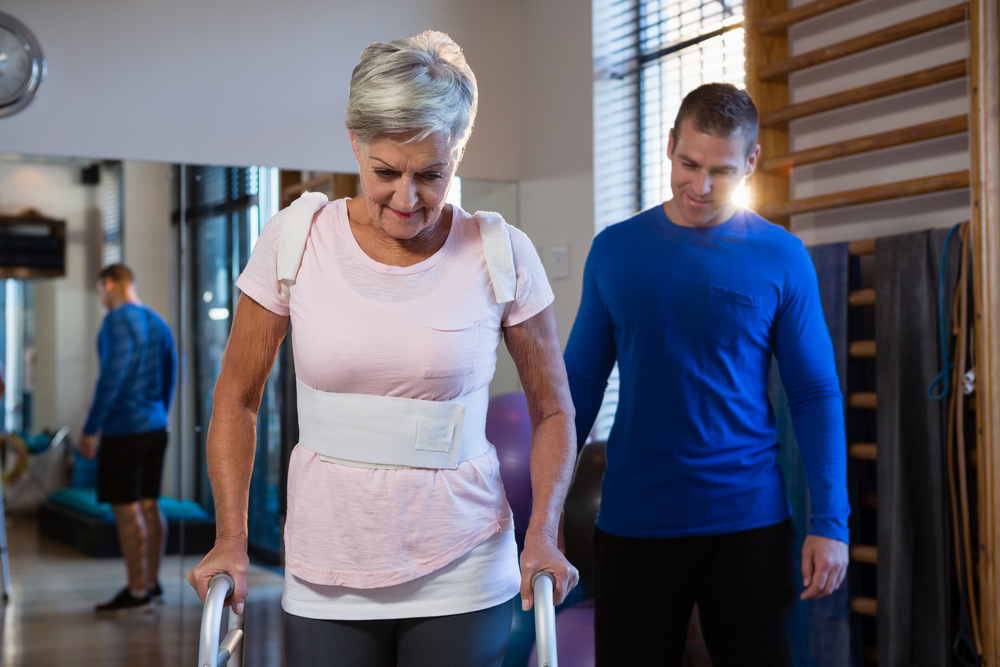 According to the CDC, one out of every seven adults in the United States deals with some sort of mobility loss that is severe enough to impact major life activities. These disabilities can vary in their severity and are brought about in a variety of ways. But what are the most common causes of mobility loss? Keep reading to find out.
According to the CDC, one out of every seven adults in the United States deals with some sort of mobility loss that is severe enough to impact major life activities. These disabilities can vary in their severity and are brought about in a variety of ways. But what are the most common causes of mobility loss? Keep reading to find out.
A Sedentary Lifestyle
It might surprise you to learn that living a sedentary lifestyle is one of the most common contributors to mobility loss in adults. As technology has advanced over the decades, Americans have become less and less physically active, transitioning from physically demanding jobs to ones that are based at a desk, in front of a computer. This decrease in activity levels can begin to impact your mobility levels as early as the age of 30. At that age, individuals can begin to lose as much as 3-5% of muscle mass every decade, which can lead to drastic mobility loss by the time you reach your senior years.
The best way to combat this muscle loss is, of course, physical activity. That doesn’t mean you have to start pumping steel every day of the week. Simple changes like taking the stairs or going on a daily walk can pay off over the long run. Additionally, it’s never too late to start increasing your activity levels. Even if you struggle with mobility now, increasing physical activity under a doctor’s guidance can help you to reverse loss of muscle mass and improve mobility in the future.
Cognitive Conditions
Every part of the body is connected, and cognitive conditions like Alzheimer’s, dementia, and Parkinson’s disease can impact far more than just the mind. These conditions can often lead to the loss of muscle control and, as a result, independent mobility. If you or someone you love has been diagnosed with one of these cognitive conditions, you should speak to a doctor about strategies to help mitigate mobility loss, as well as exercises to help slow the progression or memory loss.
Chronic Medical Conditions
Chronic medical conditions can cause progressive mobility loss that is difficult to combat. For example, osteoarthritis, neuropathy, and other such conditions can cause pain and weakness in the muscles and joints, making it difficult to engage in any sort of physical activity. This leads to a more sedentary lifestyle and, as we stated above, causes a loss of muscle mass and overall mobility.
While the idea of engaging in physical activity with a chronic medical condition might seem impossible, properly treating your condition can help make it more achievable. Discuss options for medication, exercises, and lifestyle changes that can help to reduce your pain and weakness from your chronic medical condition. Experiment with different physical activities, with proper support and supervision, to find movements that don’t agitate or inflame your existing conditions. This can help you find ways to be more active and maintain greater mobility, while keeping your medical conditions and their symptoms under control.
Physical Injuries
As we age, our bodies become less and less capable of recovering from injuries. Bones are more brittle, and even simple abrasions on the skin can take weeks to heal. So, when a more serious physical injury occurs, such as a broken bone, it’s common for senior citizens to never fully recover from the injury. This is especially common for joints, such as knees and hips, which often need replacement later in life.
When these injuries occur, some loss of mobility is always a distinct possibility. While you may not entirely lose mobility in the impacted limb, additional pain and stiffness can limit your range of motion or otherwise reduce your ability to bear weight or use the impacted limb. This mobility loss will often last throughout the person’s lifetime, and can sometimes become worse over time.
Simple Aging
Of course, aging is always a factor to consider when discussing mobility loss. While other factors are usually at play when discussing severe loss of mobility, aging contributes to a great deal of the physical disabilities that senior citizens face. Reduced muscle mass, wear and tear on joints, and other natural parts of aging can all contribute to a loss of mobility.
If you or your loved one suffers from mobility loss, contact Elixair Medical today. We offer a variety of wheelchair types, as well as other ambulatory products like walkers, canes, and crutches. Regardless of the cause of your mobility loss, we can help you find a product that can help you to maintain a greater level of independence. Contact us now to learn more.